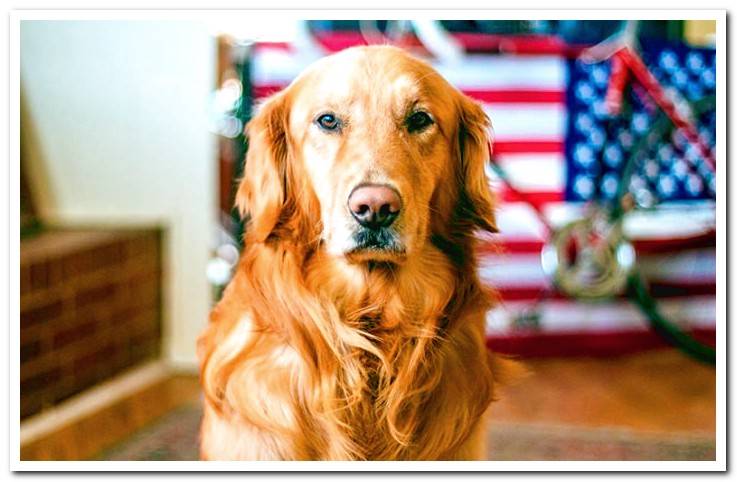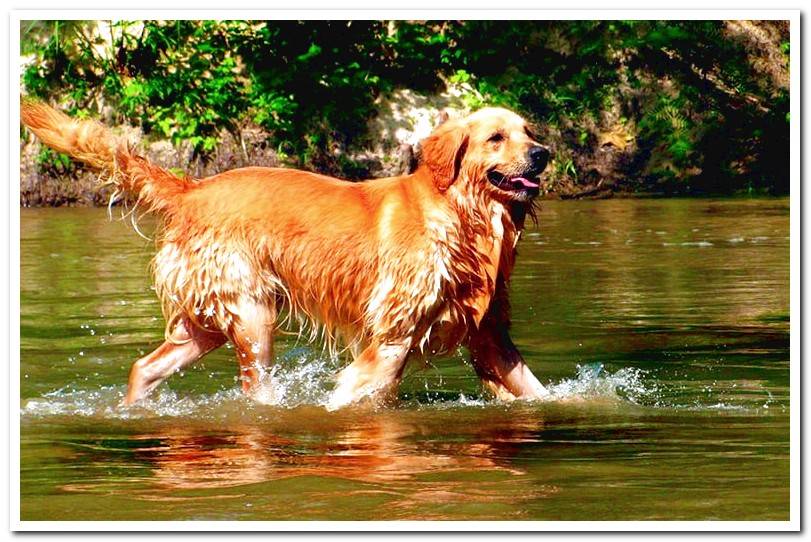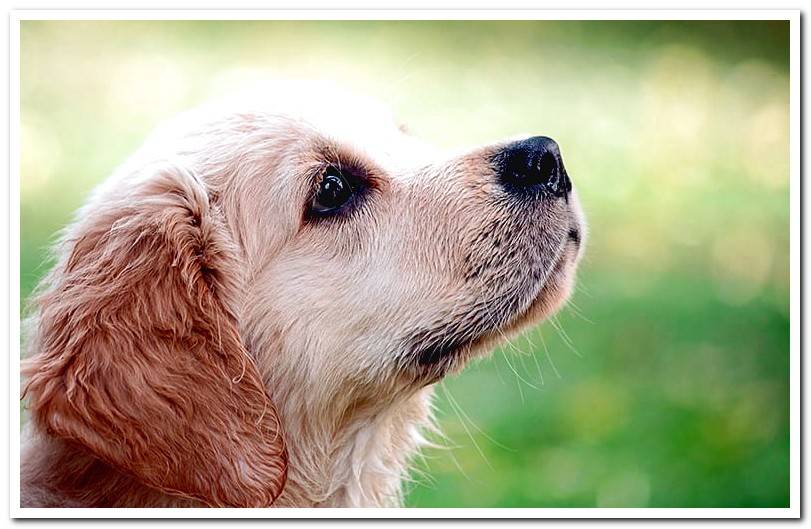
Possibly the most common and beautiful breed that exists, its golden coat and its always cheerful and loving character make it the perfect companion. But what does a Golden Retriever need to live healthy and happy?
From an adequate diet to certain physical care, the truth is that this breed needs our attention to avoid problems such as being overweight or ladysplasia. Let’s see in details how to take care of our Golden.
Index of contents
- 1 What should a Golden Retriever eat?
- 2 Daily but moderate exercise
- 3 How to take care of the hair of my Golden Retriever?
- 3.1 Brushing
- 3.2 Bathroom
- 4 Family coexistence
- 5 What care does a puppy need?
What should a Golden Retriever eat?
During its puppy stage we must limit ourselves to using a high quality feed specifically developed for large breed dogs. However, as an adult we should consider the option of going directly to a moderate calorie feed.
The Golden Retriever is very prone to being overweight, something quite detrimental to your overall health, but especially for your joints. So a “light” feed and avoiding the consumption of prizes (dog treats) is the most recommended, especially if it is castrated.

Daily but moderate exercise
Golden Retrievers are very active dogs, but we should not force them because they are very prone to joint problems and torn ligament. Therefore, we must let them run and play, but at their own pace.
Three or four walks a day are recommended for you to relieve yourself outside the home. One or two of those walks they must be especially long, letting him run and play as he pleases.
It is not recommended to force them to accompany us if we ride a bicycle or run, as they will force themselves and will end up taking their toll. Their health is not as resilient as that of other races.
How to take care of the hair of my Golden Retriever?
The golden coat of this dog requires two fundamental cares: brushing and bathing.
Brushing
It is recommended to use a metal bristle brush twice a week to remove dead hair. Also, the Golden shedding of fur twice a year, during this season daily brushing is recommended.
Being rigorous with this routine is very important, otherwise knots will form and your Golden will be the perfect host for external parasites such as fleas and ticks. You should always wait until the coat is dry to brush.
Bathroom
The Golden Retriever’s coat repels water, so frequent bathing is not necessary. Once a month or every two months will be enough to keep it clean. If it requires a higher frequency, we must use a soap with a neutral pH (specific for dogs).
Remember to clean and dry your ears thoroughly to avoid problems like Otitis, quite common in this breed.

Family coexistence
Among the care of the Golden Retriever, is also the relationship with humans. This breed is very familiar It is not the type of dog that feels good alone in a garden. Being part of family life, games and daily caresses, and accompanying people in their activities make him very happy.
In addition, it gets along well with children, so it is the ideal pet to play with them. He can live in apartments, as long as he is provided with daily physical activity, although the ideal for him are houses with a patio or garden.
What care does a puppy need?
Basic care for a Golden puppy includes waiting until the eighth or ninth week of life to wean it, although it is recommended that it continue with its mother until the third month. From there, you will feed him solid food formulated for puppies 3-4 times a day.
Puppies can practice moderate exercise, always at their own pace. Being the most recommended that you play with other dogs, so while you exercise, you also socialize.
Socializing with other dogs and people is recommended as a puppy, in this way it will grow as a friendly and balanced companion. Similarly, from the first day at home you should start teach you where to relieve yourself, eat and sleep. If you prefer, you can go to canine trainers to train him.
The vaccination and deworming schedule should be carried out according to the frequency determined by your vet. Similarly, go to the consultation if you notice signs of illness or mood changes.
